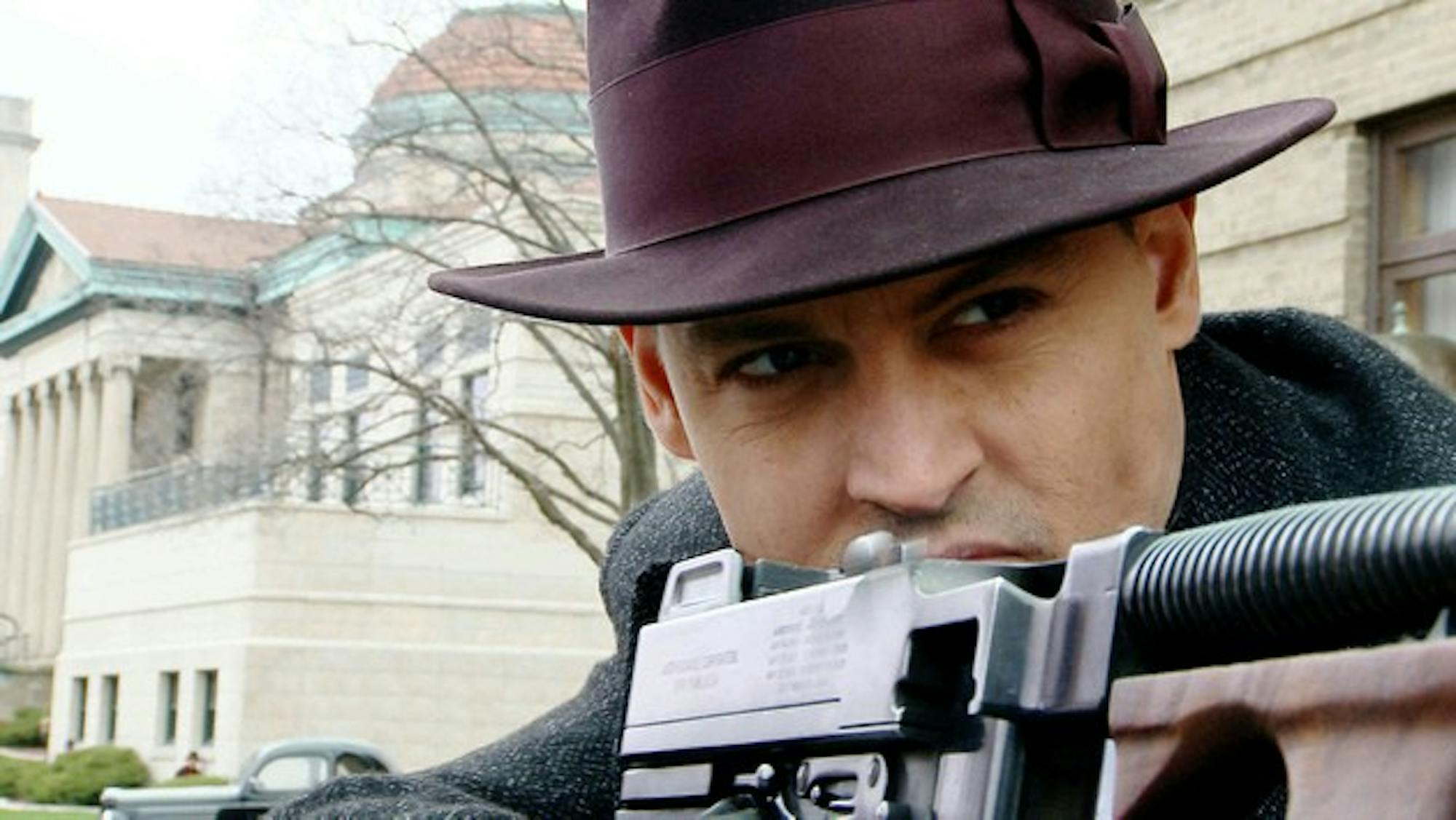"I like baseball, movies, good clothes, fast cars, whiskey and you. What else you need to know?" a suave Johnny Depp asks as he helps co-star Marion Cotillard into her red coat. By limiting his description to these few and ordinary favorites, Depp's character indicates how he perceives himself, and how we are meant to see him. I had thought I was watching a movie about John Dillinger, the notorious Depression-era criminal and I was but in the end, the movie focuses less on Dillinger as Public Enemy Number One and more on a young man who simply seeks adventure, action and a woman's love.
Directed by Michael Mann ("The Aviator"), the biopic opens in 1933, the fourth year of the Great Depression, and follows the last year of Dillinger's life.
In the early 1930s, Dillinger dominated the attention of the press, as he was responsible for robbing over two dozen banks and four police stations. These years are also sometimes referred to as the "Public Enemy Era," due to the escapades of Dillinger and other headline-grabbers like the notorious Bonnie Parker and Clyde Barrow.
When we first meet Dillinger, he is handcuffed and entering the Indiana State Penitentiary. Within minutes, it is revealed that the prisoner drop is only a show put on by Dillinger and his partner John "Red" Hamilton (Jason Clarke) to aid members of their gang in a prison break. Their getaway is representative of Dillinger's agility and stealth during heists and escapes, for which he earned the nickname "the Jackrabbit."
Dillinger and his posse eventually retreat to Chicago, where they can receive protection from the Mafia. Meanwhile, the determined J. Edgar Hoover (Billy Crudup) struggles to expand his Bureau of Investigation into a national police agency. To convince the government that his men can apprehend the most notorious criminals, Hoover launches America's first War on Crime and assigns lawman Melvin Purvis (Christian Bale) to capture Dillinger.
Hoover's public declaration does not dissuade Dillinger and his men from robbing banks in Chicago, deeds that Mann depicts with particular artistry. The uniformity created by the identical attire of Dillinger and his gang and the neat, geometrical layout of the banks contrast powerfully with the subsequent chaos brought on by shouting and shooting.
The romance between Dillinger and Billie Frechette (Marion Cotillard) also balances well with the action throughout the film. Following her Oscar for her portrayal of Edith Piaf in "La Vie en Rose" (2007), Cotillard once again plays a strong female lead, creating a bold Frechette who is believably compatible with Depp's ambitious Dillinger.
Mann also highlights the dynamic between Dillinger and Purvis, driving the audience to acknowledge the respect the two men have for one another. The chemistry between Depp and Bale portrays an ill-fated relationship between two people who meet when their respective worlds clash. Although Dillinger is the protagonist, Purvis is far from being the antagonist. The story is not a simple telling of a cop chasing a criminal, and part of the film's appeal has to do with the fact that, as an audience member, it is extremely difficult to choose a side.
The supporting cast excels at creating characters who are both complex and accessible to viewers. Nevertheless, it is Depp who leads the cast with seeming effortlessness. He breathes life into his character with a soft-spoken elegance and charm reminiscent of his performance in "Blow" (2001), in which he portrays American cocaine smuggler George Jung. In "Blow," Depp deflects the viewer from placing moral judgment on Jung and he repeats this feat in "Public Enemies."
Here, Depp's Dillinger is impossible to hate, even though it is evident that the outlaw enjoys stardom and appears to be unashamed of his criminal behavior.
Perhaps the most intriguing and gripping scene in the movie is when Dillinger walks into the "Dillinger Squad Room" at the police department, the base of operations for Purvis' team, and approaches a wall covered with photos of his friends all stamped "deceased" and one of Frechette stamped "in custody." In this scene, Depp hides Dillinger's inner thoughts behind a small, incongruous smile. The cops are oblivious to his presence, and though Dillinger has a chance to see his files, it is unclear whether he reads them or not.
His inaction sets up ambiguity that changes a viewer's understanding and appreciation of the film, as his motivations are no longer apparent. This scene adds an air of mystery to Dillinger at the end of the film, just when audience members feel that they are beginning to understand what might have motivated Depp's character.
The residual feeling of incompleteness not only serves as a disclaimer that "Public Enemies" is one interpretation of Dillinger, but also accentuates the thought-provoking and multi-faceted nature of the movie by leaving the main character elusive and almost impenetrable.
"Public Enemies" is now playing at the Nugget Theater.




